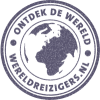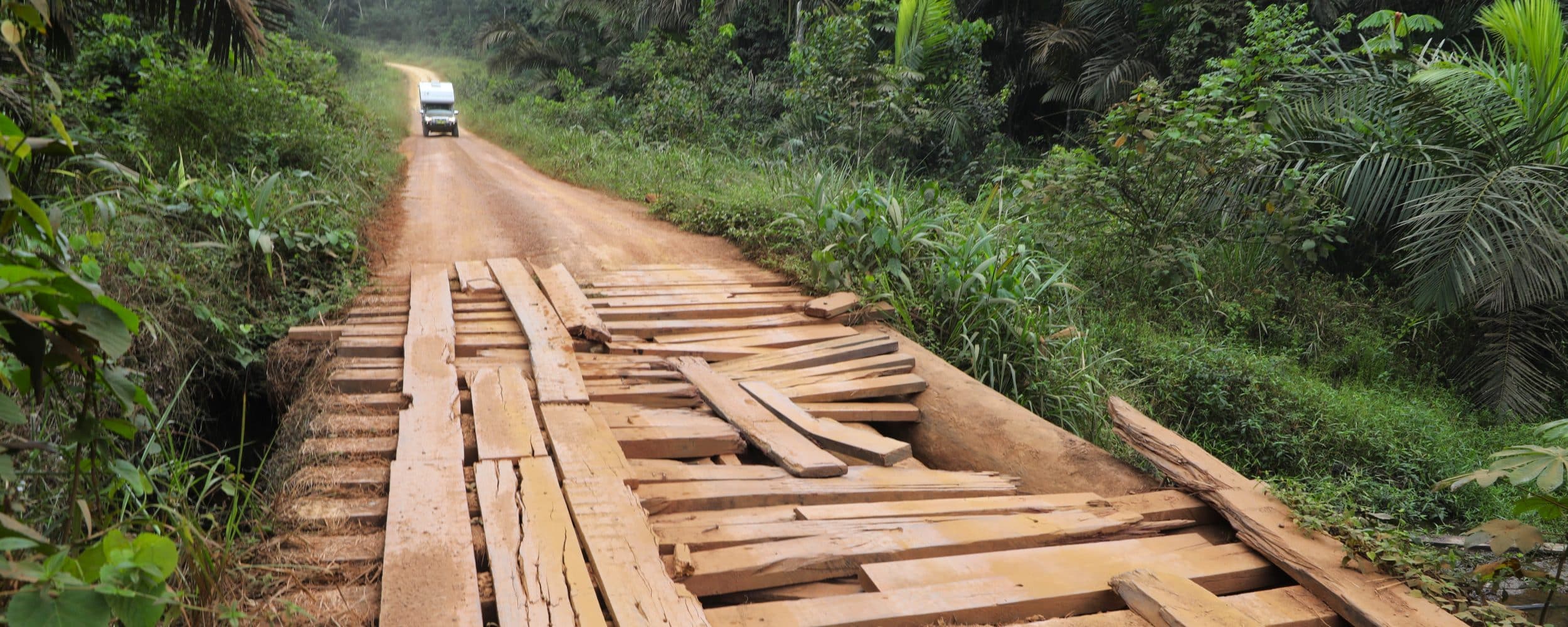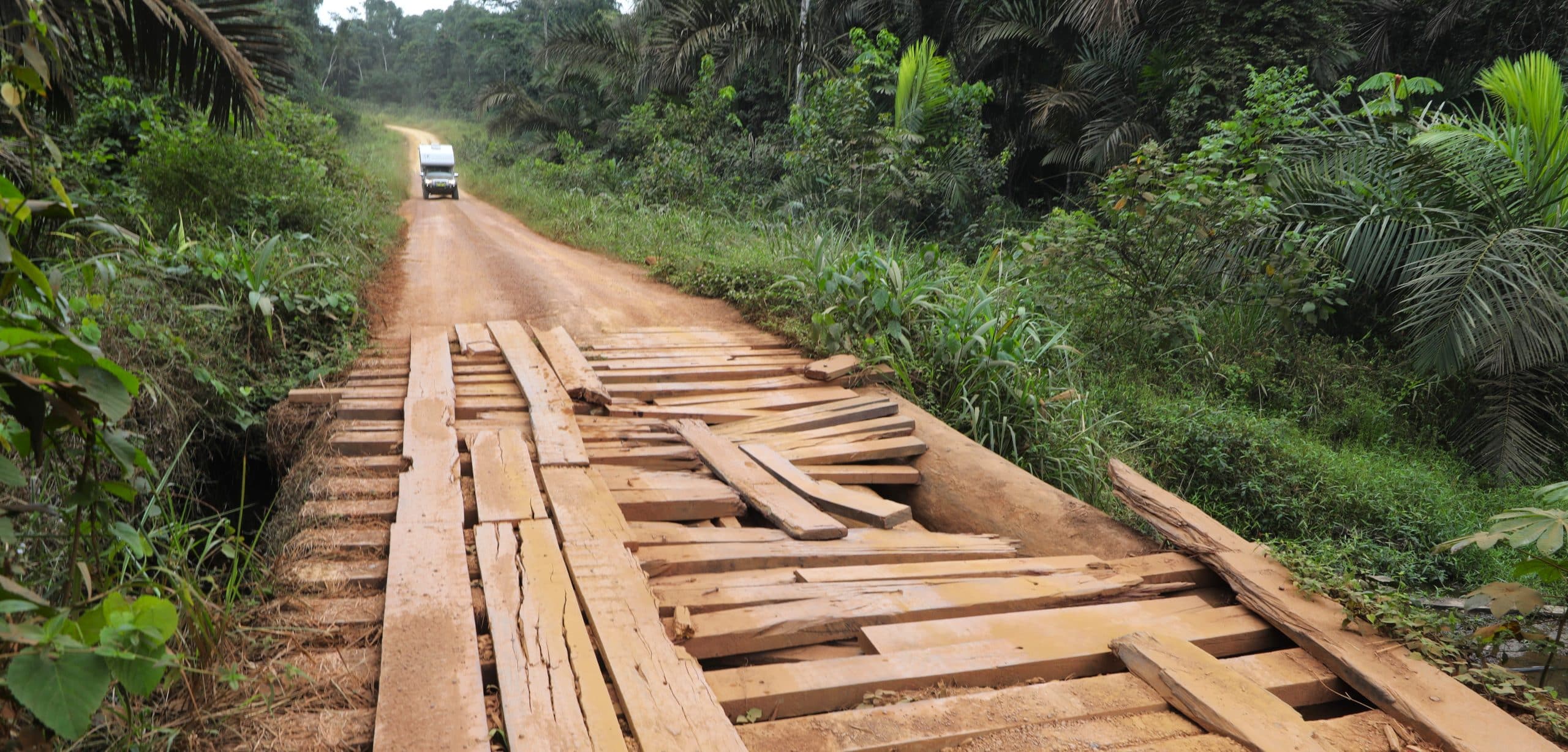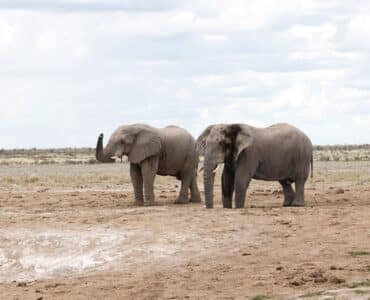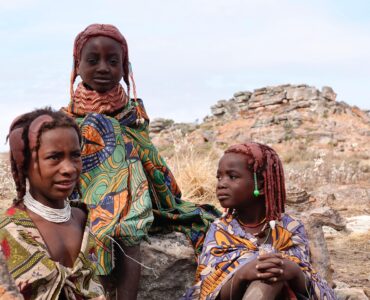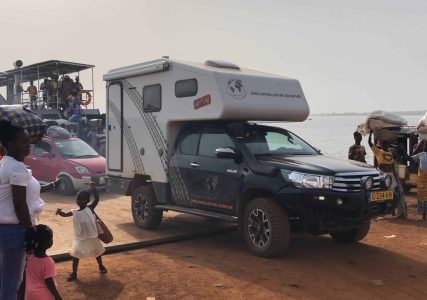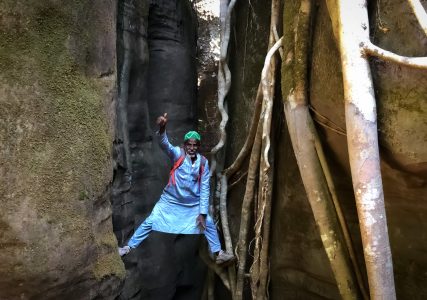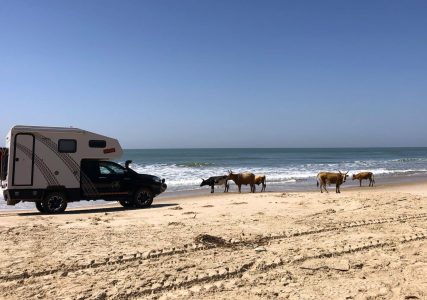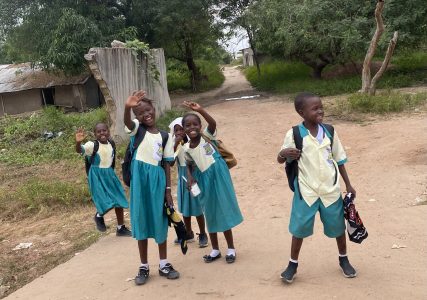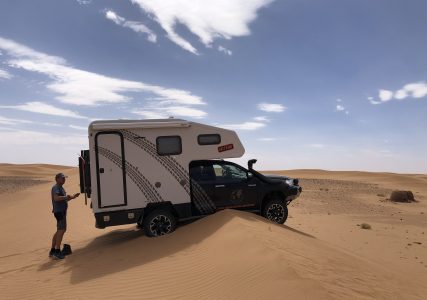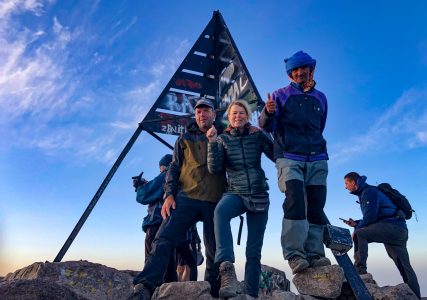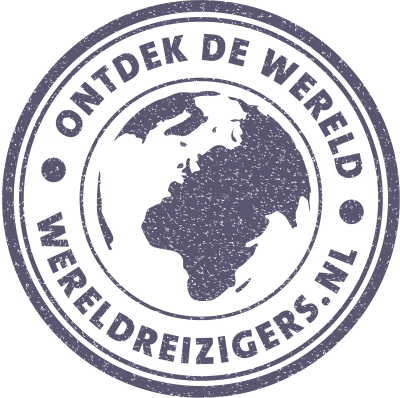We (Cor and Grietje van NoFear Travel), travel with our Toyota Hilux 4×4 camper by Africa. The African continent is the Mecca for 'overlanding' with many challenging routes and beautiful destinations. The first African country we visited during our trip to South Africa is Morocco, followed by Mauritania, Senegal, Guinea, Sierra Leone, Liberia, Ivory Coast en Ghana. After a stopover in the Netherlands, we continue our overland journey through Africa. We drove on Togo, Benin, Nigeria, Cameroon and have now arrived in Gabon. You can read all about it in this article.
As usual, start watching the video again. This is shorter than you are used to from us, but we have our reasons for this (can be read in the article...).
Plan your holiday to Africa here
- Itineraries you can compare + request quotes Africaplus, Africa tailor-made, Djoser, king monkey, rickshaw travel, sawadee en shoestring.
- Flight tickets for Africa you book through Skyscanner.
- Hostels, Hotels and Resorts in Africa you book Booking.com.
- Rental cars : Sunnycars en rental cars.
- Tours and Activities in Africa you book through GetYourGuide.
- travel items such as suitcases, bags and more you can buy at Bol.com.
- SIM cards for Africa you buy extra International sim.
- Parking at the airport you can arrange via Parkos, park care of iParking.
About Gabon
Gabon is a French ex-colony and in terms of prosperity it exceeds a number of other west and central African countries. The country is sparsely populated and about 80% of the total population lives in the city. These are Port Gentil, Franceville and the capital Libreville. About 2 million people live in an area approximately 8 times the size of the Netherlands. Wonderful if you like remote, sparsely populated areas! Fun fact is that Gabon is located on the equator.
- Tropical rainforest: By passing Gabon we are now in the southern hemisphere. 80% of the country consists of tropical rainforest. In addition to oil production, a huge amount of tropical hardwood is cut down. We have been told that this happens moderately so that the rainforests here do not disappear permanently. Moreover, it is legally established that no unprocessed logs are allowed to leave the country so that employment in the timber industry in the country is maintained.
- Libreville: From capital Libreville looks very western with large (international) companies, clean streets and busy shopping centers. Things are a little less prosperous in the suburbs, but we have seen much worse. The people are well dressed and there are much larger cars driving around.
- The coupe in August 2023: We were close to having it Gabon should remove from our itinerary. After the elections at the end of August, the opposition did not agree with the results. The army staged a coup, took over the country's leadership and appointed a new president. In order not to further stir up the unrest, borders were closed and the internet was put out of action. After a few days of waiting in Yaoundé, Cameroon, the borders were opened again and the internet was restored. The country had survived a coup without any bloodshed. That gave us confidence! We were really looking forward to it because of the many positive stories we had heard.
Our experiences in Gabon
Border crossing Cameroon – Gabon
Stamping out on the Cameroonian side went fairly smoothly. After crossing the border river, we easily got our CDP stamp on the Gabonese side. But when we asked the Gabonese immigration service for a stamp in our passport, it was refused because we do not have a visa. We were sure that a visa was not required for G20 countries. This includes the EU, and therefore the Netherlands. But according to the officers, the Netherlands was not in the EU!
Visa problems
After calling their boss, they maintained this position and advised us to go 200 kilometers back to Yaoundé to get a visa there.
A ridiculous situation!
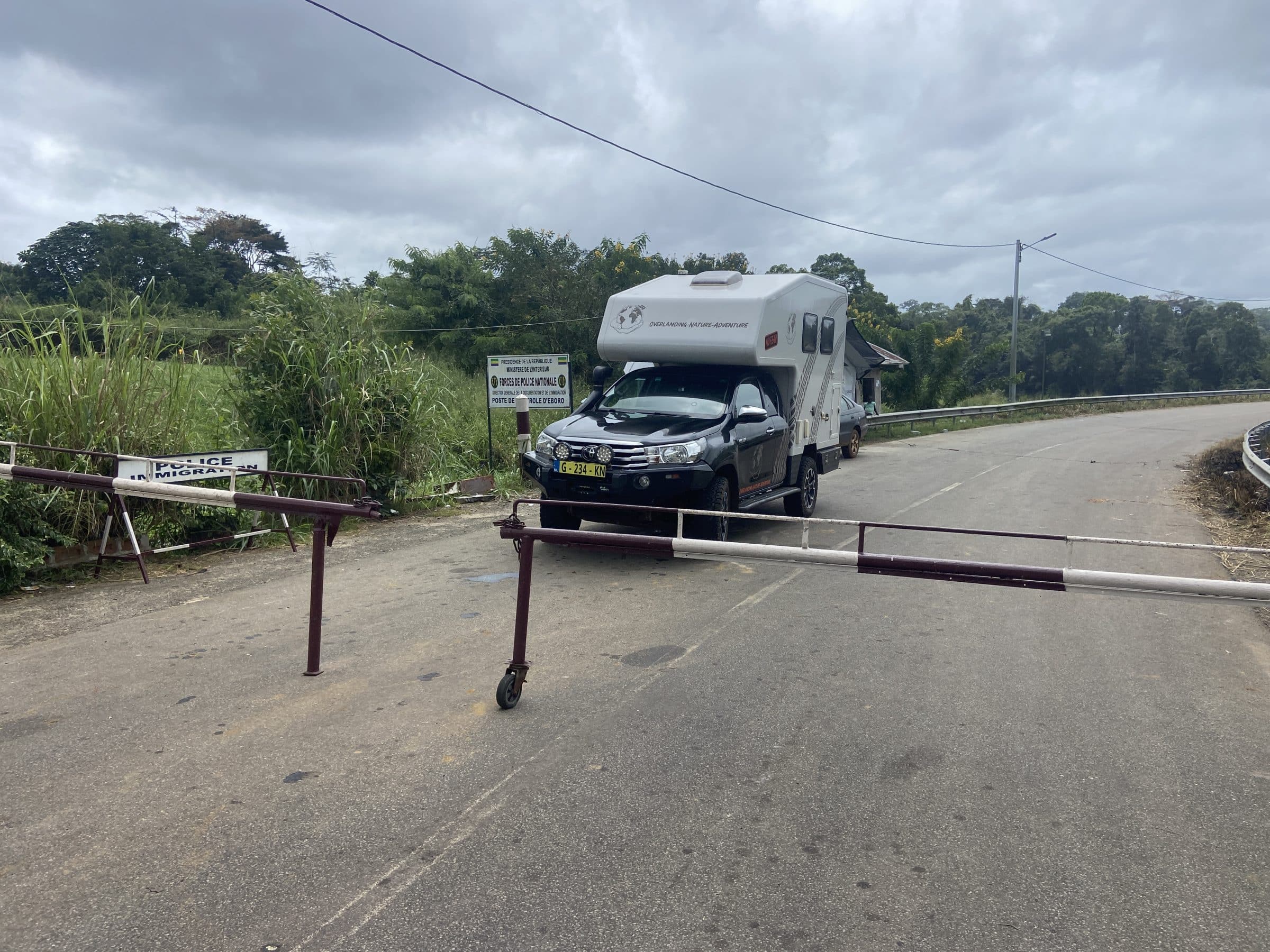
We make a cup of coffee in the camper to think about the matter. After some time they apparently got fed up with us and eventually allowed us to proceed. We have to go to the next village Bitumen, about 25 kilometers inland to get the stamp at the immigration office.
Here we meet a terribly unfriendly employee who thinks that the Netherlands is not in the EU and that we therefore cannot get a stamp.
A bit distraught by the apparent reluctance, we look for a SIM card seller. We try to show on our phone via the internet that the website of the Gambone Ministry of the Interior states that the Netherlands is one of the exempt countries and therefore has no visa requirement.
It doesn't help, despite the clear explanation on the website he continues to refuse. To emphasize his strange behavior even more, he offers to buy a visa for 60,00 euros per person. Extremely strange. We don't know what to do anymore and out of frustration we take a picture of him. He doesn't like that, so he calls his boss.
This arrives quickly and after a short explanation we still receive the stamps from the chef on the condition that we remove the photos.
The unpleasant situation lasted about 3 hours. We imagined a better start to Gabon. But quickly forgotten….
We drive further along a beautiful road through the dense jungle and find a spot on an open stretch where we only hear birds and crickets.
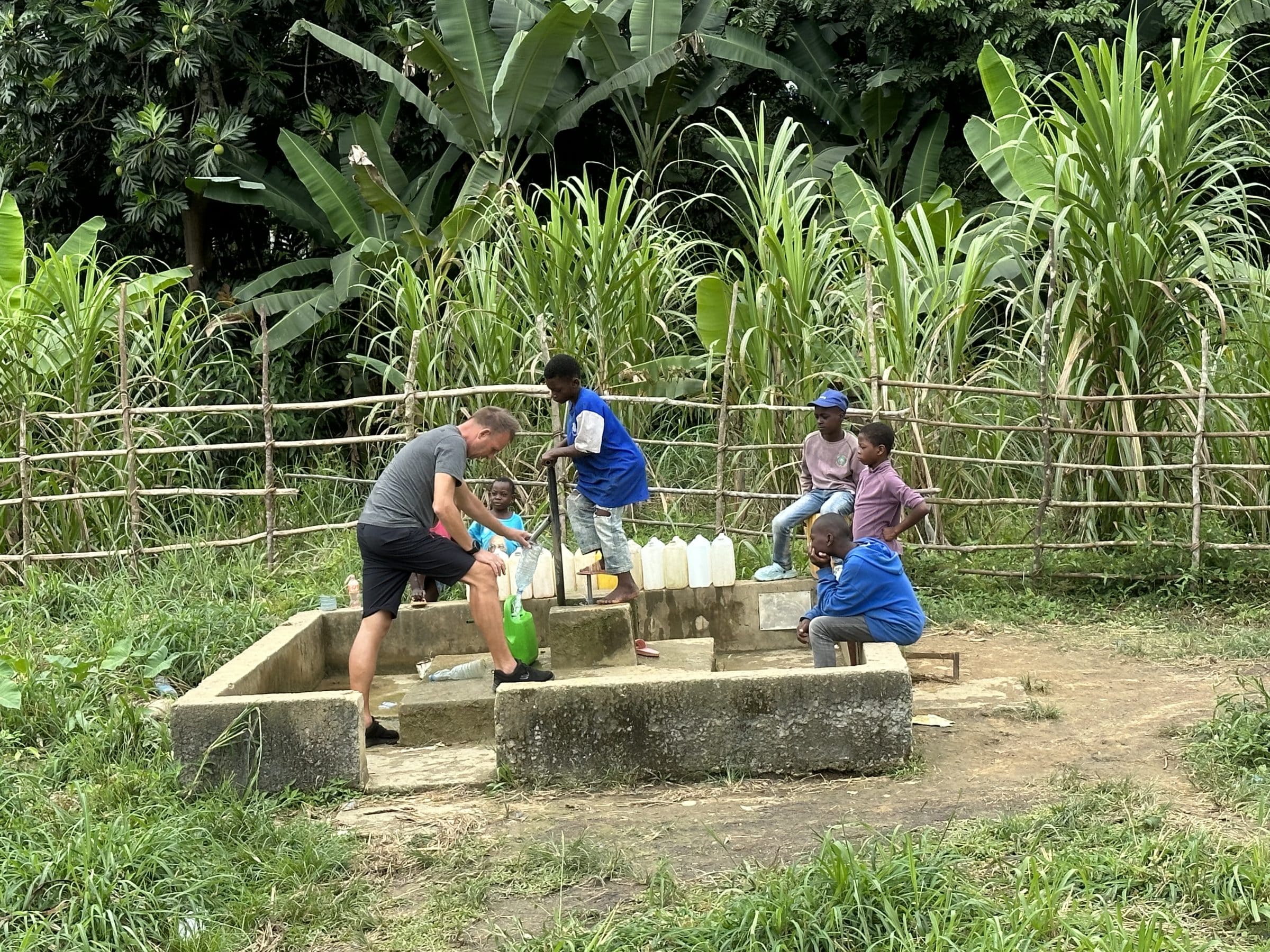
On the way east, Makokou
After we have rested a bit, we continue our way about 400 kilometers to the east, Makokou. First a beautifully paved road, the last 100 kilometers a gravel road. Quite a few serious checkpoints along the way. Businesslike and not very friendly. Our goal is Makokou from where there are opportunities to do a jungle tour by canoe, ending at one of the most beautiful waterfalls in central Africa, Kongou.
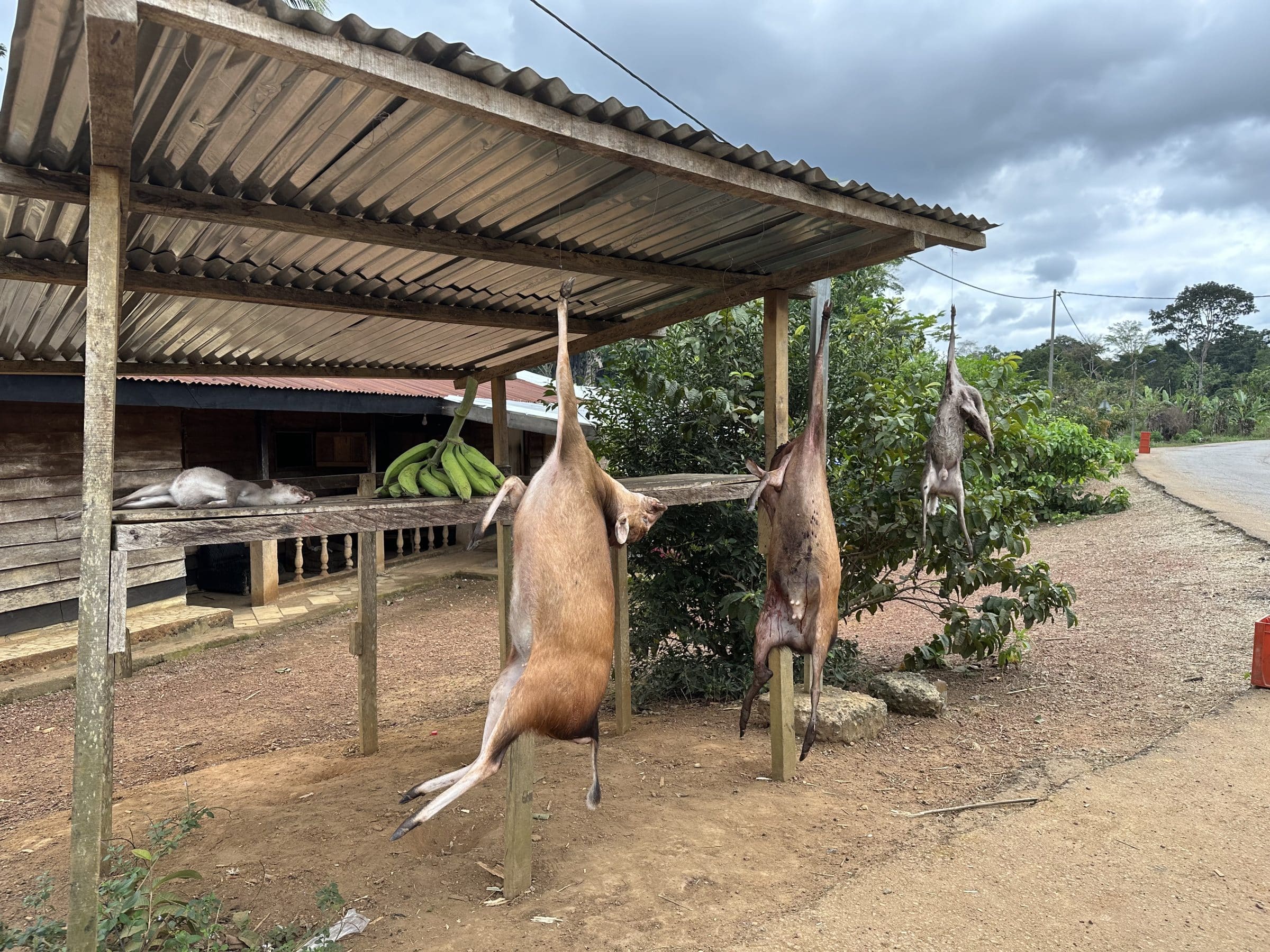
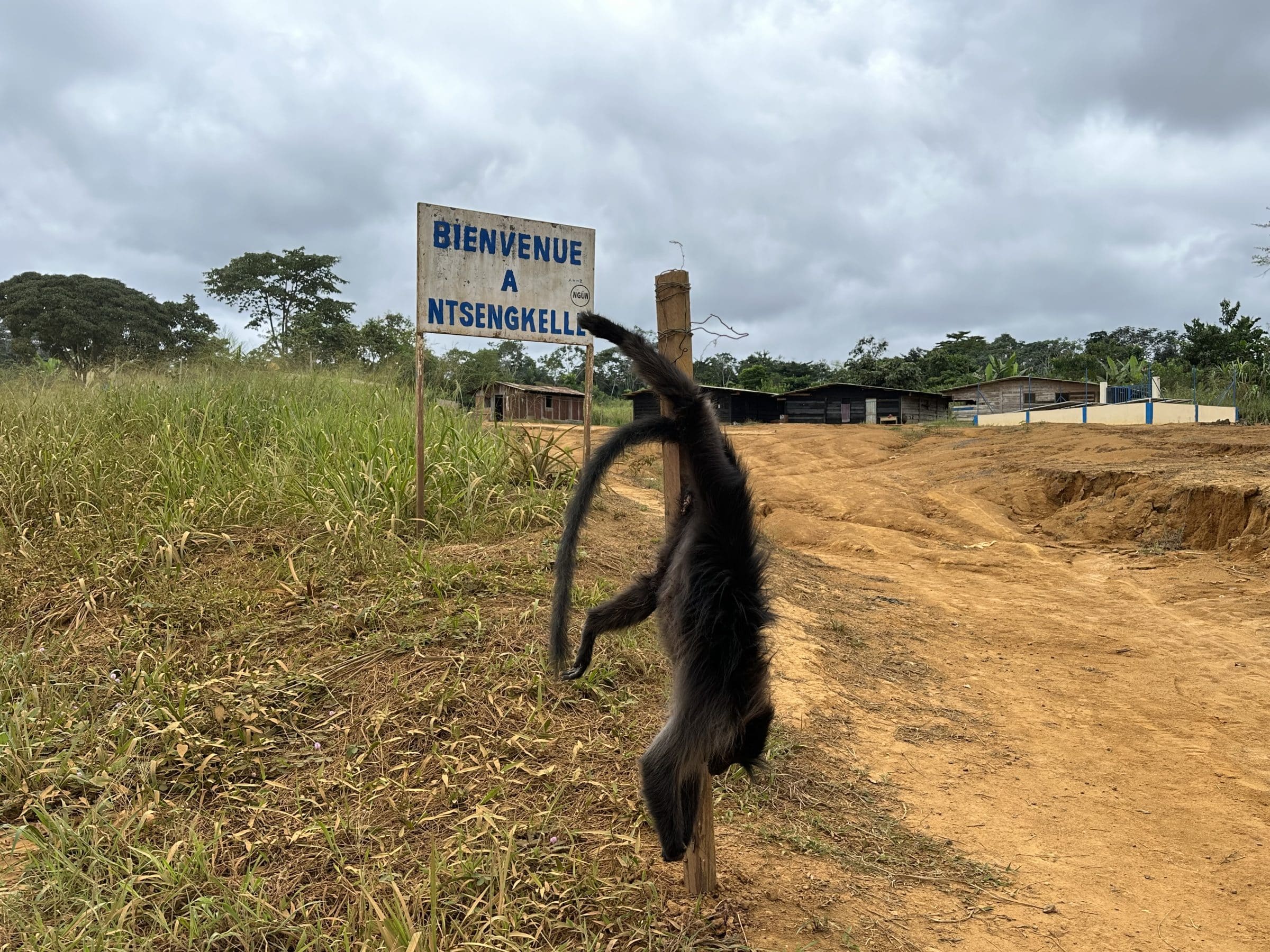
Tense situation and arrest
However, about 10 kilometers before Makokou we are stopped by the gendarmerie. They check everything quite unfriendly. Then an officer wants to get into the passenger seat with Grietje and then drive to the office in Makokou. We find it inappropriate to sit together on a single passenger seat. We refuse this, which creates a tense situation.
Later another car arrives and the officer gets in. We must follow.
At the office in Makokou, everything is thoroughly checked and photographed again by several people. The passports are copied and examined several times. More and more official people are arriving with more and more questions. There is an unfriendly atmosphere. You can't tell from the gentlemen who or what they are, most of them are wearing slippers with a T-shirt and sweatpants.
It seems like the men are annoyed that we don't have a better command of the French language, even though we try. They have hardly heard of English here. There is a lot of talk, but it is completely unclear who is actually in charge.
Ultimately, we understand that we have to leave the area as soon as possible because everything is dangerous due to the recent coup. We have to go - possibly with an escort - to the capital Libreville where we will receive new instructions.
The Colonel and the immigration office
A little later the situation changes when a man in a tracksuit arrives and introduces himself as “colonel”. And indeed, everyone jumps to attention.
He tells us that we have to go to the immigration office for further instructions. We drive there with an escort. Here meet a friendly officer…. One that welcomes us and does not approach us as criminals. He makes copies of our passports and tells us that we can move freely through the country. However, we must adhere to the curfew between 18.00:06.00 PM and XNUMX:XNUMX AM. He offers us a place for the night right next to the guarded immigration office. Despite this friendly gesture, we realize how the country is in complete disarray (perhaps due to the coup) and how the gendarmerie and police are completely confused. Later we will better understand the differences between the remote east and the populated west of the country.
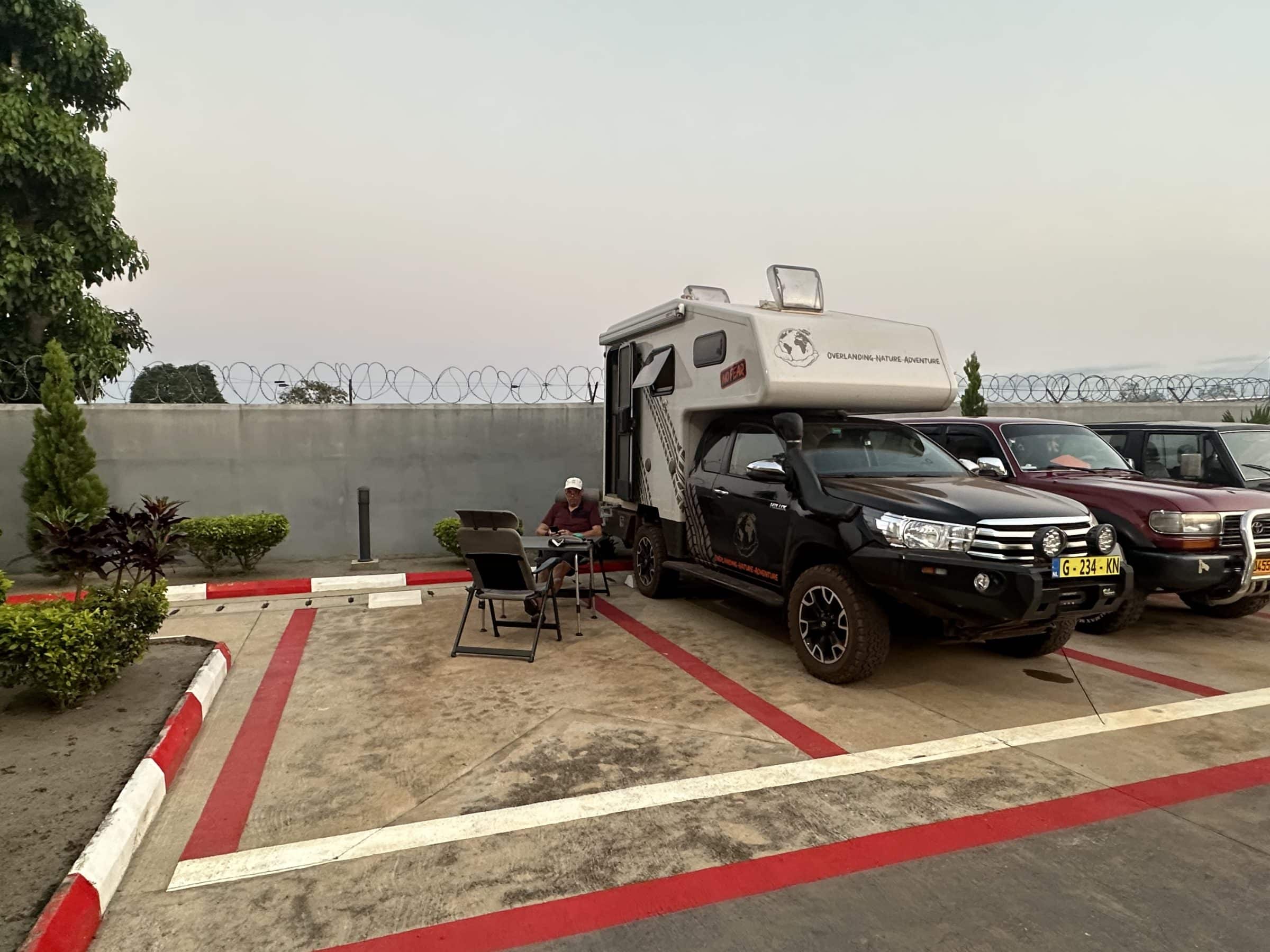
Remark: We are now in contact with a retired colonel from the French army who drives approximately the same route as us. We have plans to do the river tour together to reduce costs. We understand that he has also been arrested. We suspect that our arrest is related to our contact with this Frenchman. This has never been confirmed.
On to the jungle tour…ending in escort
We are now in contact with the guide of the river tour to the waterfalls and make arrangements to start the next day for a two-day trip with an overnight stay in the jungle. We're looking forward to it!
But before the immigration officer hands back our passports, he says “one moment” and rushes away in his car.
It takes almost an hour and a half before he returns, together with a delegation of 9! uniformed people, it looks very official. At a large conference table we are told that we must leave the country as soon as possible. Completely unclear why, but we get an escort to the nearest border with Congo. People mutter something about the recent coup but give no clear reason. There is no negotiation possible, that is clear.
We are very disappointed because our visit to Gabon effectively ends here. The escort will last three days and we will have to cross the border near Lekoni in the east of the country.
In convoy to Okondja (260 km)
That same afternoon we leave together with Bruno, the Frenchman. There is a car in front that we have to follow. The men are armed but otherwise quite friendly. We ask to keep some distance on the dusty gravel roads and ask not to drive in the dark.
We spend the night in a village on a football field. The next day we leave early again to arrive in Okondja around noon.
Along the way the atmosphere is friendly and we even take some photos.
In Okondja we will be transferred to another region who will then escort us further.
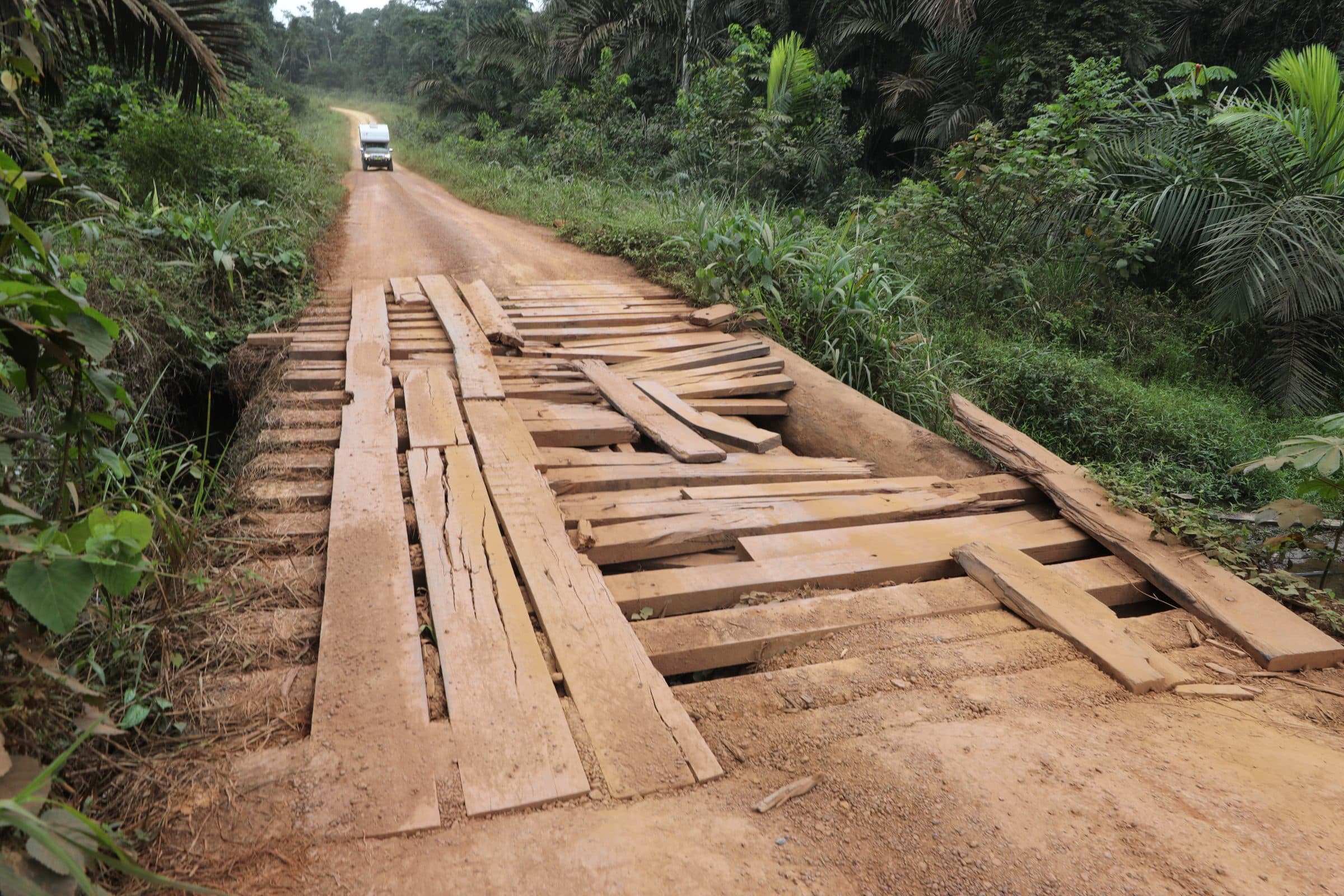
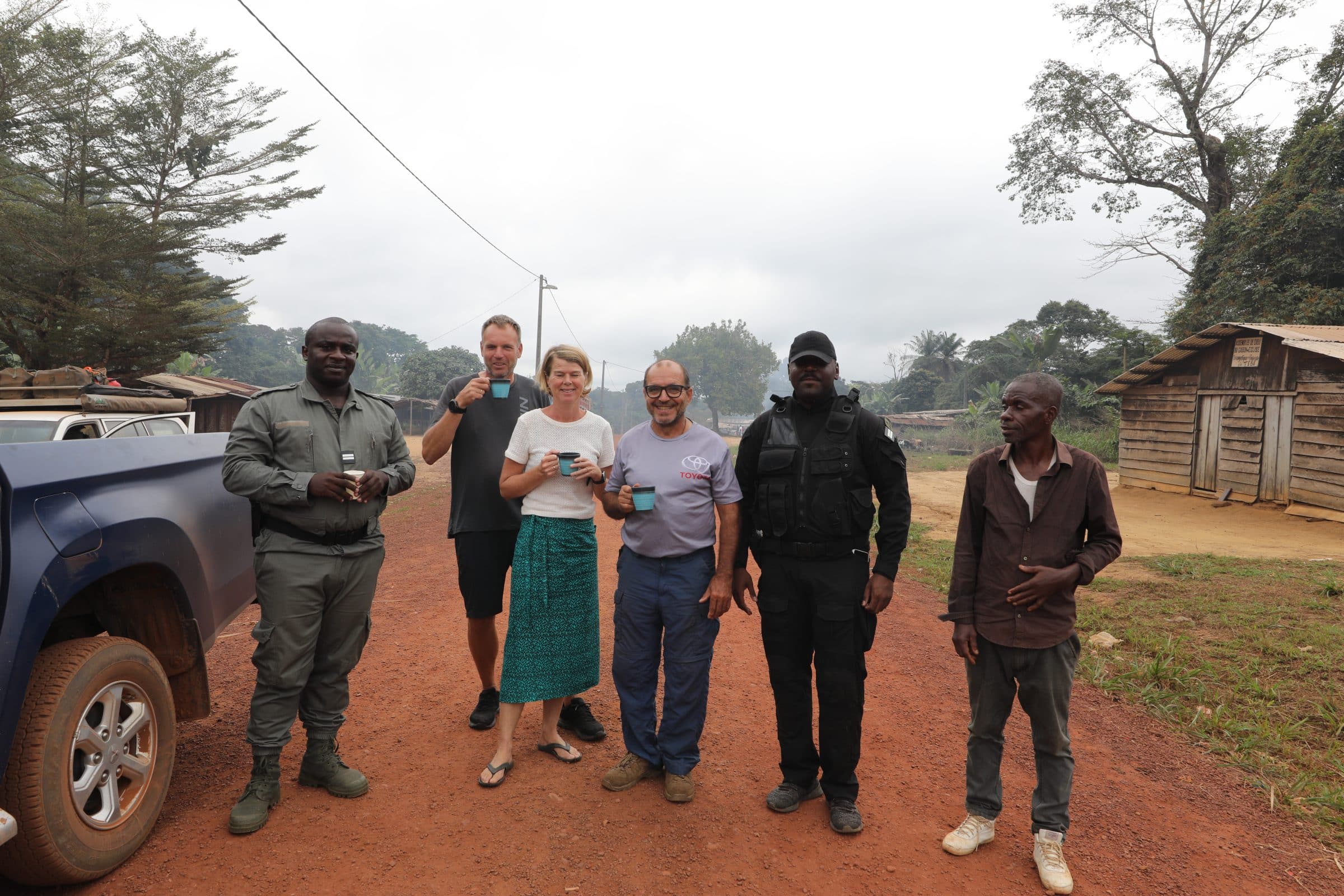
Meeting in Okondja
The gendarmerie office in Okondja is located in a kind of closed compound. After arrival, a meeting is convened with 11 partially uniformed participants. We do lack knowledge of French here and there is no one who speaks English. We notice that Bruno also translates a little in his own way.
But in the end there is no plan, we are not told anything about the reason for the arrest or the further course of action.
Contact with Dutch Embassy
We retreat to the camper and try to contact the Dutch embassy, but they are not calling back yet.
Time passes, it gets dark and we are not allowed to leave the site.
Around 21.00 p.m. a group of “cops” in casual clothing approaches us. They are clearly drunk. They ask for passports of which they want to make another copy. We refuse to give our passports to these drunken men. They threaten to puncture our tires. Fortunately, we can calm the situation down a bit, after which they disappear. Later we hear that they also seriously harassed Bruno.
Aggressive atmosphere
The next morning we wait for what is to come. Around 10 o'clock more and more “cops” gather around us. Including the same drunk men as last night. The atmosphere is aggressive.
At some point they tell us that we have to leave the site immediately. But where should we go? Who's the boss here?
We have not yet received a definitive answer about the further course of action and have not yet had any contact with the embassy. We indicate that we are willing to wait for this.
Then someone says “force” and they start throwing our tables and chairs into the camper. For proof, we try to take a photo of this action. Cor is then hit in the face and Grietje is forced to the ground in a headlock.
In great panic we pack our last things and flee the site in the camper.
But where to? We decide to first buy some bread and water in the village. They followed us with two cars and blocked us in front and behind so that we could not go in any direction.
After some time someone presses a phone into our hands. We have an English-speaking colonel on the phone who tells us that we have to return to the compound and he will come to arrange everything.
After 4 hours of waiting he arrives. The man has a high position, he allows himself to be driven in a large, tinted car and the flag is lowered.
He tells us that a convoy to the capital Libreville (710 kilometers) is being organized together with the Frenchman and he will leave immediately.
In convoy to Libreville
The convoy consists of four cars. The front rider, us, Bruno and a rear rider. The less than friendly supervisors are seven of them, four of whom are armed. The total ride takes about 4 hours, spread over 22 days and we mainly have to deal with very bad gravel roads.
The first morning, after a four-hour drive, we stop in a village at a cafe where the gentlemen drink beer at 10 o'clock in the morning due to lack of coffee. This is the only stop apart from a self-arranged bathroom break.
The last stretch to Libreville the roads improve and we arrive around noon.
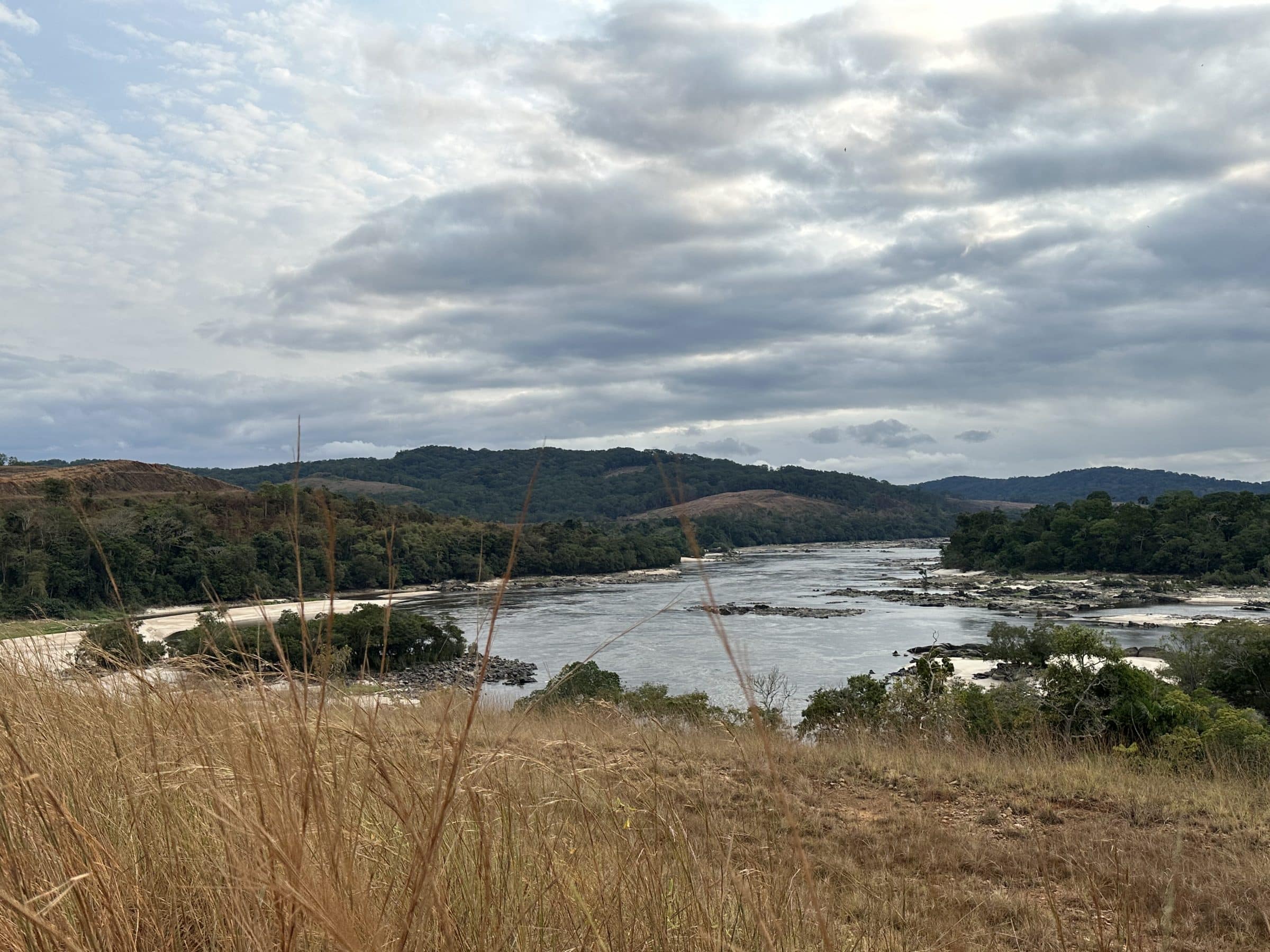
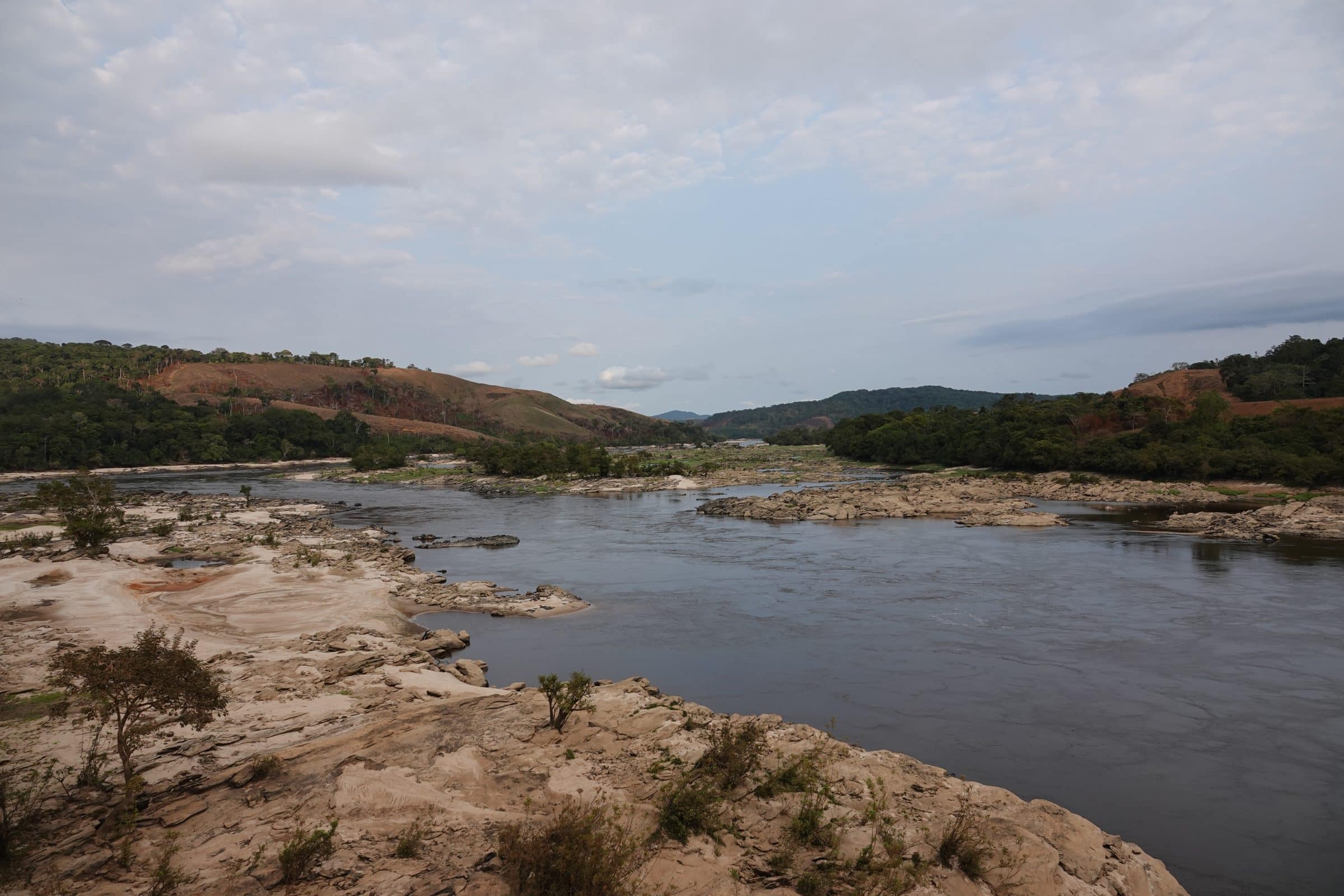
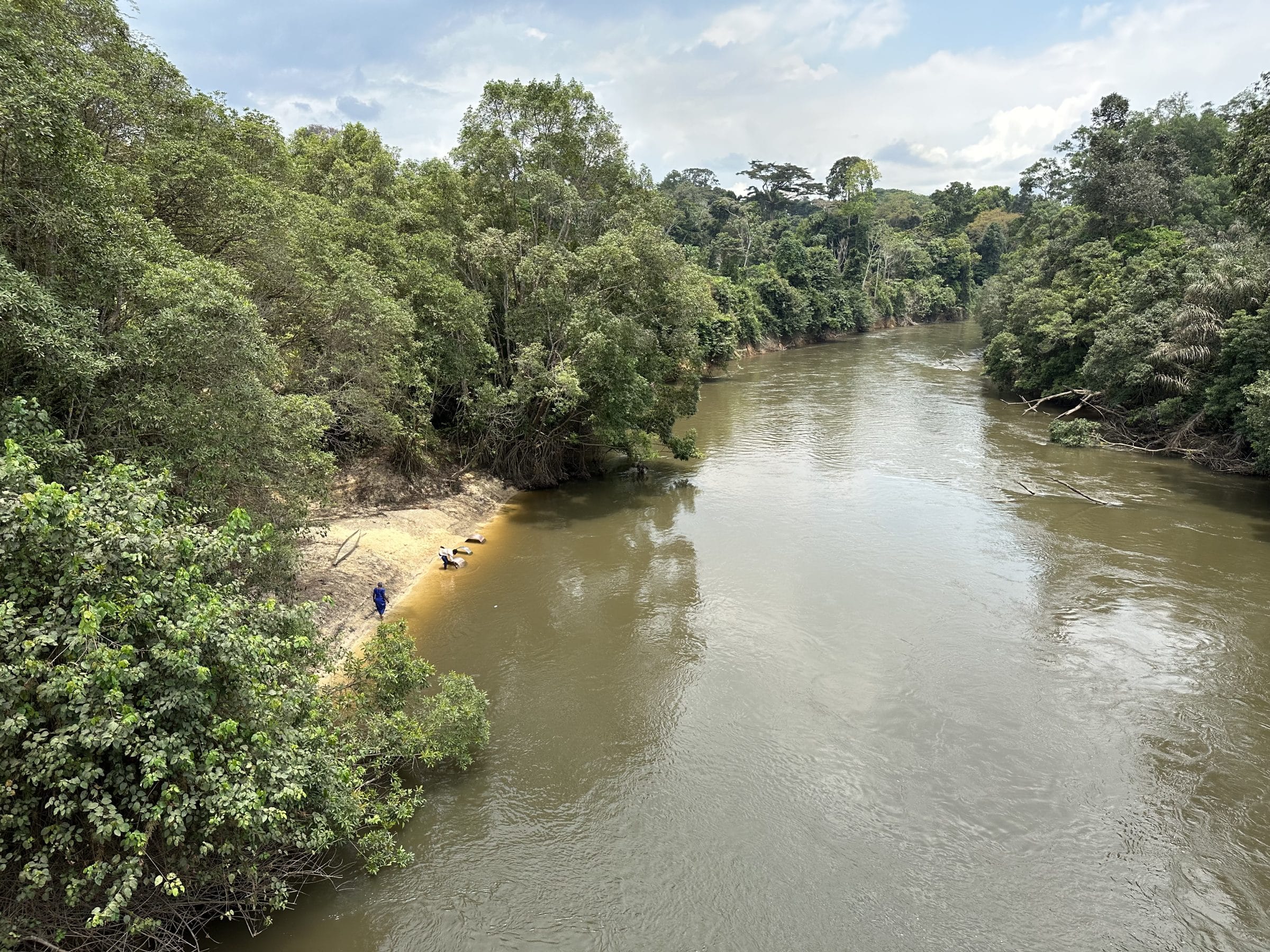
Interrogation in Libreville
We are dropped off at the “Bureau des Recherches”. After a long wait, we are separated and interrogated separately. It's all very primitive. The questions have little substance. However, we are asked directly whether we are spies. A statement will be drawn up that we must sign. The people here are quite friendly and give the impression that the matter has been completed. We just have to visit the immigration office for some administrative matters. Once again in convoy we go to the immigration office.
What seemed like a settled matter turns out to be a misinterpretation of reality! At the immigration office we are “welcomed” by the female colonel. Someone who acts nice, but isn't!
Return phones, laptops, passports and car keys
She tells us that some more investigations need to be done. We can spend the night in the guarded square in front of the building. We have to stand on the side where we are in full lighting, so they can keep a close eye on us at night. We have to hand in our belongings such as cameras, phones, laptops, passports and car keys.
Completely destitute, not knowing what will happen, we sleep poorly.
The next morning nothing happens. Our emotions run high and we ask the colonel what is going on, why we are here and what the plan is. The only answer is that we get an interview the same afternoon.
The interview has little substance. It takes a long time to enter everything into a computer.
We are now also in contact with the Dutch consul for Gabon and she is visiting us. She checks the document and we sign it.
In pre-trial detention
The consul also has no answers to the question of why we are here. According to her, we have not been officially arrested but in a kind of pre-trial detention while the investigation is ongoing.
On the days that follow, nothing happens, it's mostly just a matter of waiting. We are well looked after when it comes to food and drinks. We are given a bucket that we can use to shower under police supervision. We have little entertainment, the days are long. We have to beg to be allowed to use our phone to call our children, while they watch and quickly think it's taking too long.
There is also a kind of asylum seeker center on the square, where mainly young men from surrounding countries are waiting for residence status. They are also closely guarded.
On the penultimate day before our departure, a group of 9 “birdwatchers” arrive, who have also been arrested in the east of the country. They receive more or less the same treatment. So we are not the only ones.
Nothing happens at first on Friday, September 22, even though the weekend is just around the corner. Will we have to stay here for the weekend as well?
Leaving the property without passports
At 17.00 p.m. the colonel shouts across the square, telling us to come in. She tells us that she must leave the site immediately. We get all our stuff back, except our passports. We are told that this will probably be announced next week.
We first find a hotel and later an apartment in the north of the city, where we stay for another 5 days with mixed feelings. Yes, we are happy with our larger living environment, but without passports we can't do much. Moreover, we still don't know why we are here.
Freedom again after 14 days
On Wednesday morning, finally, the redeeming phone call comes from the consul: we can collect our passports after 14 days! It is advised to go with the consul, because our car would be too flashy. No idea why. We are curious about further instructions, but no, we get our passports without any explanation. Then get out!
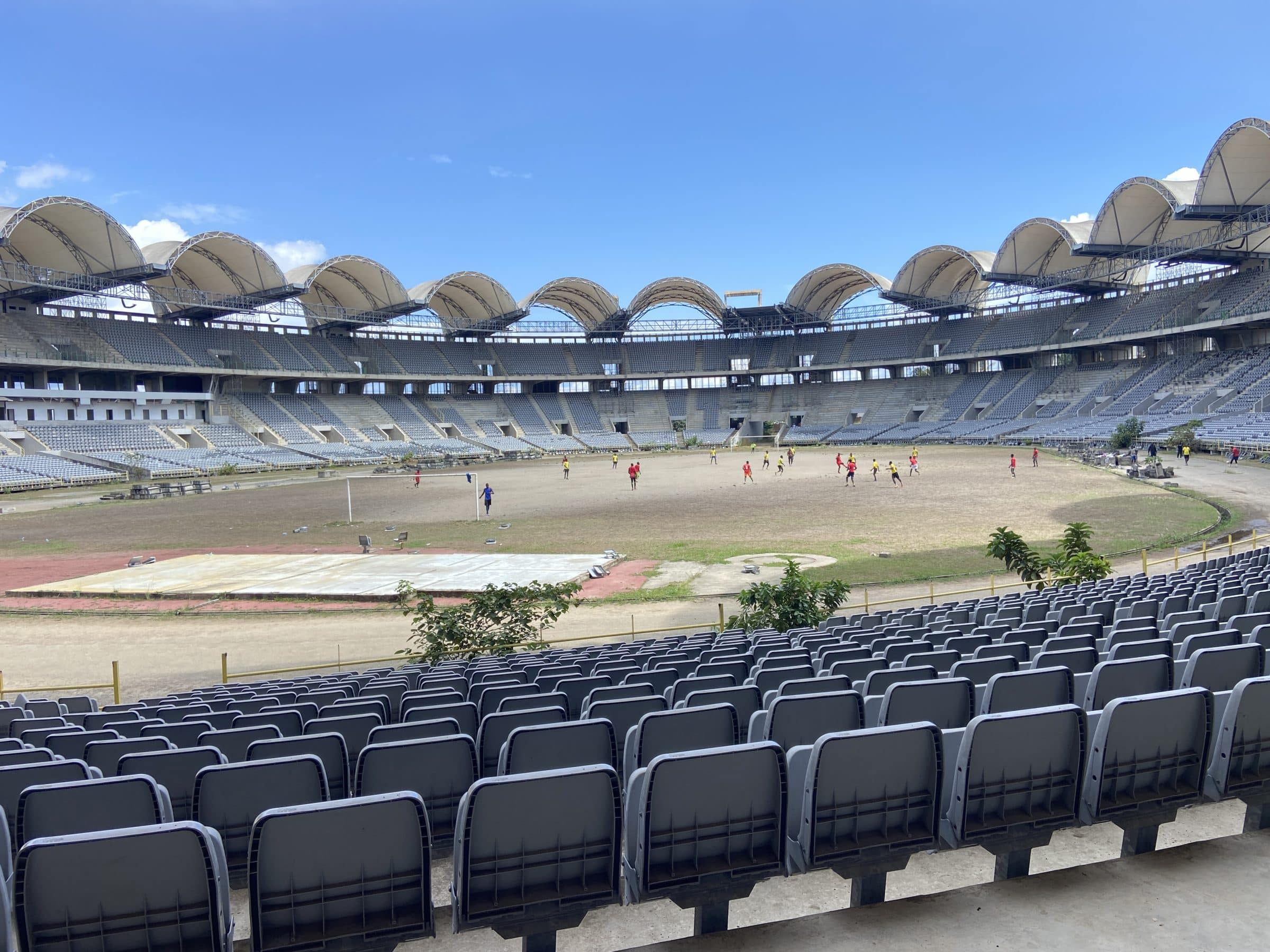
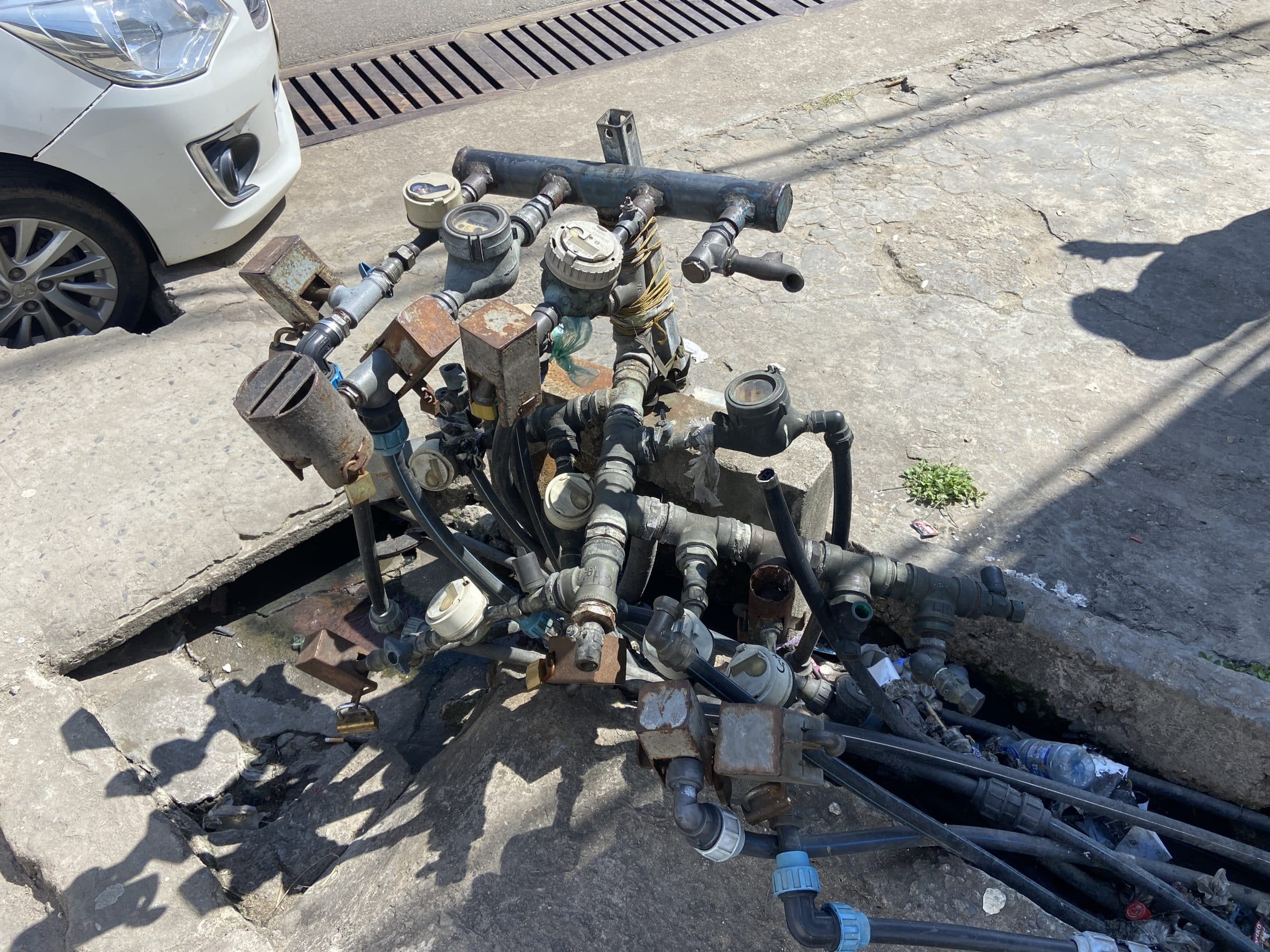
On the way back to our camper we have another conversation with the consul. She asks, among other things, not to publish our story in public. We ask her “why”. She gives an unclear, confused answer, but the bottom line is that she believes that the country should not be damaged. We suspect intertwined business/diplomatic interests in which she is also a link. Our consul is co-owner of a large Gabonese company and likes to maintain good contacts with the Gabonese government. We feel like a pawn in something much bigger!
Looking back
When we look back on the whole story, the big question remains: Why? We can only guess.
As adventurous travelers, we always take into account various scenarios of possible danger. Only we had not thought of this option! We have learned life lessons again, experienced up close what it feels like to be stuck, no longer free. To live in a country where the gendarmes drunkenly throw tables and chairs and do not hesitate to hit innocent people. We learned how political/diplomatic games intertwine with the business interests of ambassadors and consuls.
What now
After the experiences of the past 14 days, it is difficult for us to get into our rhythm at first. Do we still want to stay in this country, we ask ourselves.
We would like to see the national parks we have heard so much about. Moreover, we would like to get a positive impression of Gabon, just like the 17 African countries we have visited before.
We therefore decide to go to the southwest of the country where NP Loango is located. Here we could spot elephants and gorillas, among others.
But when we heard the price of more than 400,00 per person per night in a jungle tent, we abandoned this idea.
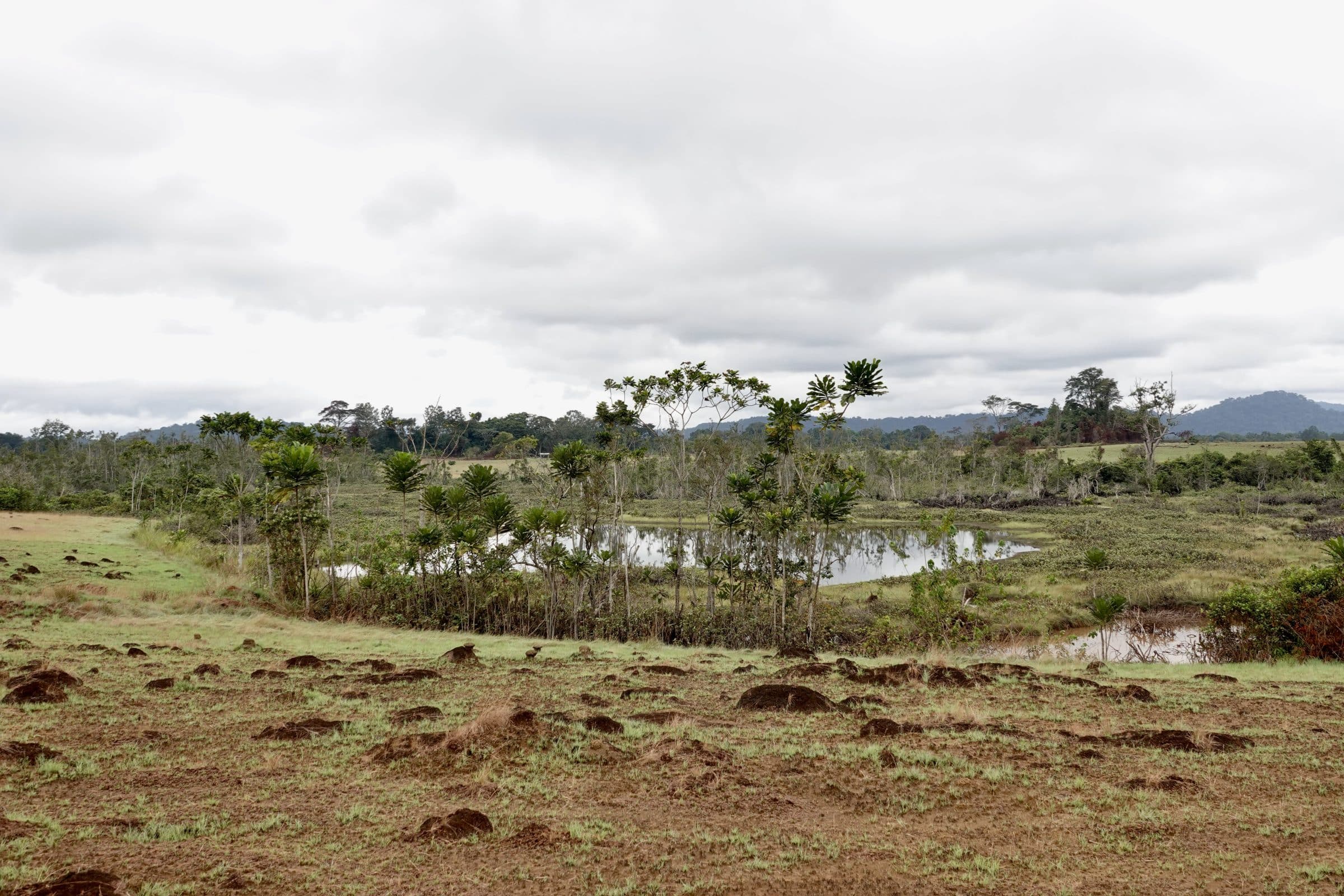
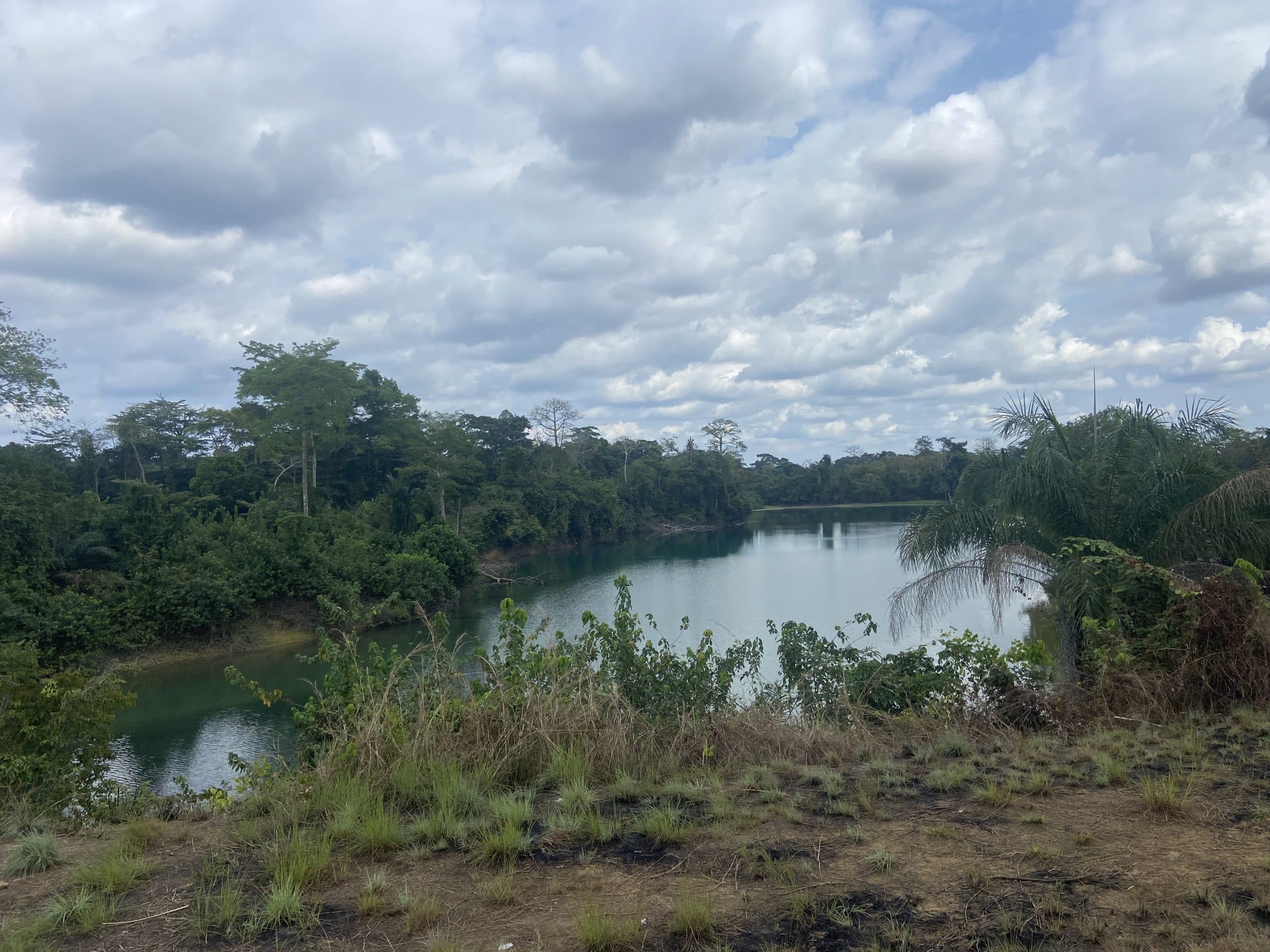
Positive ending
On a remote road in the southwest of the country we drink a cup of coffee on a rock near a small pond. An older lady with a friendly face passes by and we have a chat. She is clearly happy and we have a nice conversation with our “petit peut Francais”.
She talks about the many elephants that live here and eat her bananas in the plantation. She then tries to chase them away with light signals.
She also says that there are a lot of fish in the lake further away and that she regularly eats crocodile meat that also lives in the same lake.
We give her an oliebol and she trudges on with a heavy basket on her back.
We conclude our visit to Gabon, and especially hope to be able to remember this wise Gabonese lady, when we - old and gray - read our travel stories ourselves.
Plan your holiday to Africa here
- Itineraries you can compare + request quotes Africaplus, Africa tailor-made, Djoser, king monkey, rickshaw travel, sawadee en shoestring.
- Flight tickets for Africa you book through Skyscanner.
- Hostels, Hotels and Resorts in Africa you book Booking.com.
- Rental cars : Sunnycars en rental cars.
- Tours and Activities in Africa you book through GetYourGuide.
- travel items such as suitcases, bags and more you can buy at Bol.com.
- SIM cards for Africa you buy extra International sim.
- Parking at the airport you can arrange via Parkos, park care of iParking.
